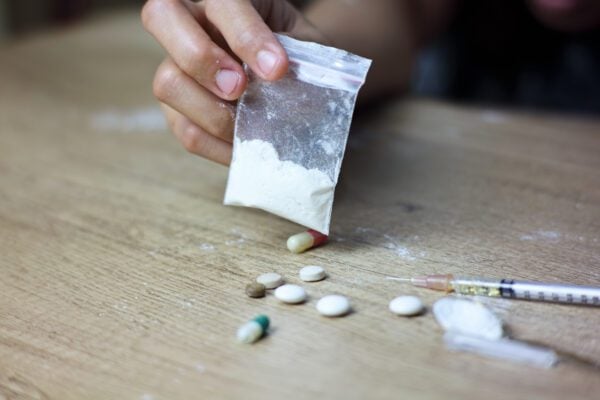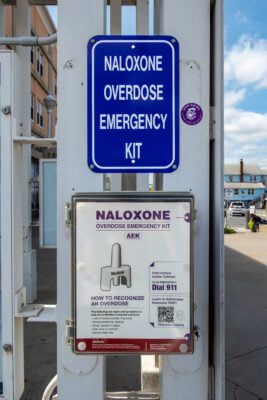KATE, where can I find help for opioid addiction?
KATE, the AI chatbot launched by Indianapolis nonprofit Overdose Lifeline, provides answers like treatment centers, recovery resources and emotional support.
In a state where thousands of lives are lost to overdoses each year, KATE is offering a new way to connect Hoosiers with hope and help.

In 2022, Indiana reported 2,682 drug overdose deaths, equating to an age-adjusted rate of 41.0 per 100,000 people. However, provisional data from the CDC indicates a promising trend: overdose deaths in Indiana decreased by nearly 18% in 2023, dropping from an estimated 2,666 in 2022 to 2,190. Despite this progress, the state continues to grapple with the opioid epidemic.
Overdose Lifeline has been at the forefront of combating the opioid crisis in Indiana since 2015. Founded by Justin Phillips after the tragic loss of her son, Aaron, to a heroin overdose, the organization is dedicated to preventing opioid deaths and supporting affected families. Phillips’ personal experience fuels her commitment to this cause, leading to initiatives like the passage of Aaron’s Law, which increased access to naloxone, a life-saving overdose reversal drug.

In its latest effort, Overdose Lifeline has introduced KATE, which stands for knowledge, advocacy, trust and education.
KATE is an AI-driven chatbot designed to provide immediate assistance to individuals struggling with opioid addiction. The chatbot offers information on treatment options, local support groups and educational resources. By offering confidential, 24/7 support, KATE addresses barriers such as stigma and accessibility, encouraging more individuals to seek help.
“We created this chatbot to be a reliable, verified source of information for people to come and speak anonymously to get information about drug testing, about harm reduction, about how to have hard conversations,” Phillips said. “We don’t track any information on anyone that asks questions, and it’s completely free.”

Once a question is asked, KATE forgets you asked it, Phillips explained. KATE gets her information from the Centers for Disease Control and Prevention and other federal and state organizations.
Beyond technological interventions, Overdose Lifeline participates in awareness campaigns such as Black Balloon Day, observed on March 6. This international event invites families to honor those lost to overdose by releasing virtual balloons and sharing their stories.
“Overdose Lifeline participates (in Black Balloon Day) by just trying to remember all the beautiful lives lost that we have crossed paths with,” Phillips said.
For Overdose Lifeline, KATE is the next step in a long battle against the opioid crisis.

“We definitely want KATE to be a resource to springboard people into harm reduction, access, having naloxone on hand, having fentanyl test strips and knowing how to get help when needed,” Phillips said. “We definitely want people to use KATE. We definitely want people to share with their friends and family that KATE is a reliable and trusted source of information.”
To chat with KATE, visit hellokate.com. To learn more about Overdose Lifeline and the work they are doing, visit overdoselifeline.org.
This reporting is made possible by a grant from the Indianapolis African-American Quality of Life Initiative, empowering our community with essential health insights. https://iaaqli.org/
Contact Health & Environmental Reporter Hanna Rauworth at 317-762-7854 or follow her on Instagram at @hanna.rauworth.
Hanna Rauworth is the Health & Environmental Reporter for the Indianapolis Recorder Newspaper, where she covers topics at the intersection of public health, environmental issues, and community impact. With a commitment to storytelling that informs and empowers, she strives to highlight the challenges and solutions shaping the well-being of Indianapolis residents.








